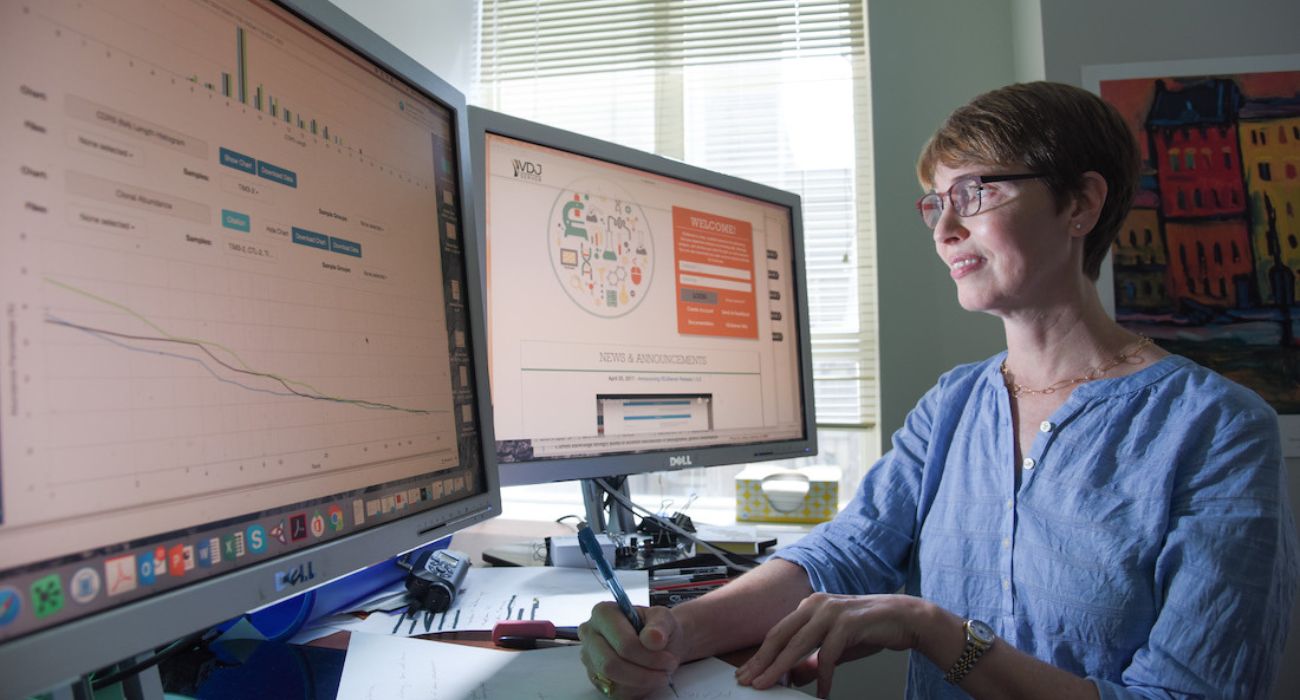Researchers at UT Southwestern Medical Center will lead a consortium of scientists from multiple institutions in a massive five-year project to establish a publicly accessible clearinghouse of knowledge on the human immune system, the hospital announced last Thursday.
Scientists anticipate that gathering and assimilating trillions of data points on the billions of sequences used by the adaptive immune system’s immune receptors will lead to a greater understanding of diseases and possible treatments. The database will be known as the Adaptive Immune Receptor Repertoire (AIRR) Knowledge Commons.
The AIRR will contain data and research on the adaptive immune system, focusing on B-cell and T-cell receptors. Scientists recognize that such cells are critical to the body’s response to diseases like cancer.
The initiative will be funded by a $5 million taxpayer grant issued by the National Institute of Allergy and Infectious Diseases (NIAID).
“The award demonstrates that NIAID and the research community believe this is an important effort. We have been working with our collaborators for years to build the foundation for a large project such as this,” said Dr. Lindsay Cowell, principal investigator on the project, per a news release.
“We believe the Knowledge Commons can have a broad impact because the adaptive immune system plays such an important role in maintaining health and in a wide variety of diseases,” she said.
Researchers believe that combining data on various facets of the human immune system will allow them to gain a more holistic understanding of how genetics, demographics, and antigen exposure history may affect a person’s susceptibility to illness and possibly lead to the optimization of treatments such as cancer immunotherapy, vaccinations, and more.
“When large amounts of data are integrated, new and different insights can be found. These are things that no single research project can reveal but require hundreds of studies together to illuminate patterns and behaviors not observed before,” said Cowell.
Based on the integrated data collected, researchers will run analytic and predictive algorithms through the Texas Advanced Computing Center at the University of Texas, producing a knowledge graph of the relationships between the data.
“Some of the operations we will perform involve trillions and trillions of calculations,” said Scott Christley, the project’s technical lead. “This is called exascale computing and is the edge of what can be computed today.”
“We need supercomputers to perform these calculations. Knowledge bases have the potential to accumulate more knowledge than any single person can master, with real potential to increase productivity and the rate of scientific discovery,” Christley said.
Other institutes participating in the project include the Cincinnati Children’s Hospital Medical Center, Birkbeck College, the University of London in England, the University of Louisville, the La Jolla Institute, and Bar-Ilan University in Israel.






